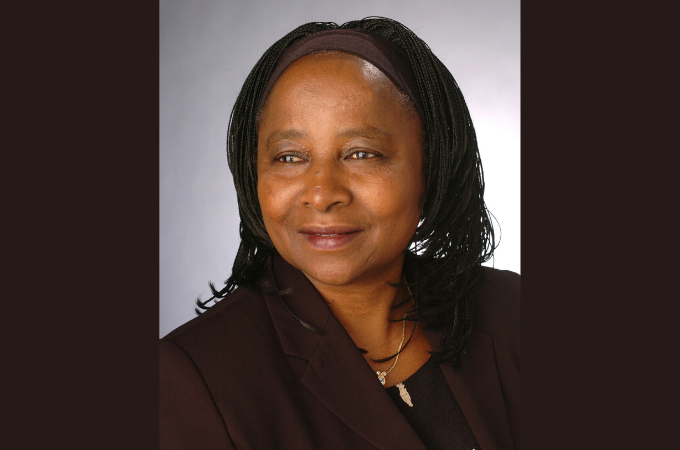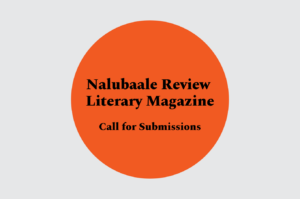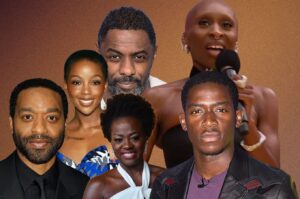
The worlds of literature, activism and academia continue to suffer painful losses this year, with the death on 30 June of Kenyan professor, author and activist Micere Githae Mugo. According to family sources quoted by The Nation newspaper, she died in the United States after a long illness. She had retired and retired from public life in 2015 and was widowed in 2020. Her husband, John Njuguna Mugo, was a doctor and a member of the Department of Biochemistry at the University of Nairobi’s Chiromo campus. Her daughter Njeri passed away in 2012 and she is survived by her other daughter, Mumbi. Professor Mugo left us at the age of 80.
Micere Githae Mugo was a reference in a variety of fields. The East African Standard listed her as one of the 100 most influential personalities in Kenya in the last century, although her imprint also extended to her last host country, the United States, where she served as Professor Emeritus of Literature, Oral Literature and Creative Writing in the Department of African American Studies at Syracuse University since 1993. “I am Micere, the one who travels, the one who visits,” she introduced herself in an interview for the Global African Documentary Series project. “I am a woman, I am the mother of Mumbi and the late Njeri. Professor Mugo also defined herself as a daughter of the Kenyan soil, someone who crossed borders in defiance of the politics of containment, and an internationalist and communitarian. Moreover, she assumed identities and heritages she came across along the way: Zimbabwean, Nigerian, Jamaican and black American. “Micere became a name that travelled the world,” she stressed.
Dr Mugo was born in 1942 in Baricho, a village in the prosperous county of Kirinyaga, which lies in the shadow of Mount Kenya and is irrigated by the Thiba River, circumstances that favor the cultivation of rice and the cultivation of coffee and tea on its cooler slopes. Given her rural, agrarian background, few would have predicted that Professor Mugo would become the first East African academic to earn a doctorate in literature, specialising in genres such as drama and poetry, which she linked to the oral tradition she had known since childhood.
She attended Embu Girls’ Middle School in Embu from 1952 to 1956 and Alliance Girls’ Secondary School before moving to Uganda, where she graduated from Makerere University with a Bachelor of Arts degree in Philosophy and Arts in 1966. Micere Githae Mugo continued her education at Brunswick University in Canada with an MA in Literature in 1973 and at the University of Toronto with a PhD which she completed in 1978. She focused her thesis on the fictional works of four African authors: Chinua Achebe, Margaret Laurence, Ngugi wa Thiong’o and Elspeth Huxley. It was not her first publication: Brunswick University’s English Department published a volume entitled The Long Illness of Ex-Chief Kiti and Other Works, also signed by her, in which she denounced the division among Kenyans along cultural and political lines.
The celebrated writer Ngugi wa Thiong’o was a friend of Mugo’s as well as a subject of study. Together they wrote a play in 1974, The Trial of Dedan Kimathi, touching on issues such as the struggle for independence and authoritarianism and making visible their opposition to the regime of President Daniel Arap Moi. It was her denunciation of human rights abuses during the Moi dictatorship that put her in the crosshairs of the regime, which harassed, arrested and interrogated her.
In 1980, she became the first woman in the country to assume the responsibilities inherent in being dean of a university faculty, holding the position in the Faculty of Arts at the University of Nairobi. Her fierce criticism of the government resulted in her leaving her post and going into exile in 1982. Stripped of her Kenyan citizenship, she was branded an incendiary by the Moi regime for her advocacy of justice and her denunciation of human rights violations. She fled to Zimbabwe with her two daughters, which became her new home, where she was accepted as a citizen and where she became a teacher. At the University of Zimbabwe, she coincided with another vital, political and cultural reference point, the Ghanaian Ama Ata Aidoo, who died on 31 May and whom she considered her inspiration and mentor. Mugo, like Aidoo, contributed to Zimbabwean education: she was responsible for developing the country’s school curriculum.
The journal Eastern African Literary & Cultural Studies published a tribute to Professor Mugo on Twitter stating that she “lived as she wrote, without complexes”. “Today we mourn Professor Micere Githae Mugo, our mother in the world of letters, our teacher and our mentor,” it continued. “We have lost a giant, but the foundations she built for the (East) African literary community are very solid. Rest in peace, Prof. Mugo.” One of the authors with whom she shares the project Ellas (también) cuentan, coordinated by Federico Vivanco for Casa África, Yvonne A. Owuor, celebrated her as “one of our bravest, best and brightest stars, another of our great protecting trees; stylist of the word, prophet, poet, playwright, author, guardian of justice, creator of dreams, thinker, scholar, a beautiful mind (and heart)”. All these qualities were publicly endorsed in 2021, when the Royal African Society awarded her a lifetime achievement award.
Among her self-confessed literary references are Flora Nwapa, Grace Ogot, Chinua Achebe (who encouraged her to publish her first collections of poems) and Okot p’Bitek. She signed fifteen books, including two plays and three monographs, and edited several magazines. Her works include Disillusioned, also published in 1976, which describes the hypocrisy of religious cults, and the collection of poems Daughter of my peoples, sing!, which reflects her political and social, left-wing and feminist convictions. In 1998 she published My mother’s poem and other songs. She also completed a PhD in Letters at the University of Nairobi and received the Flora Nwapa Award for Excellence in Writing, the Faculty of Arts and Sciences Award for Excellence in Teaching at Master’s Level and the Mwalimu Julius Nyerere Award from the University of Dar es Salaam (Tanzania).
On the social side, she has been a spokesperson for Amnesty International causes and was the founder and president of the Pan-African Community of Central New York, where she established volunteer programmes in two prisons. She also received the Distinguished Africanist Award from the African Studies Association of New York for her contribution to scholarship and the Nelson Mandela Leadership Award. Her works include political and philosophical texts such as African Orature and Human Rights (1991), The imperative of Utu/Ubuntu in Africana scholarship (2021) and Writing & Speaking from the Heart of My Mind. On the 50th anniversary of Kenya’s independence and birth in December 2013, she was honoured as an Elder with the Burning Spear.










Akal Mohan July 11, 2023 04:47
Am I missing out on something, misplaced pronouns in some instances. Micere being a she and some places being a he